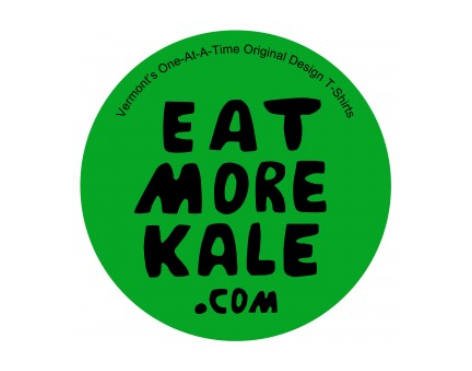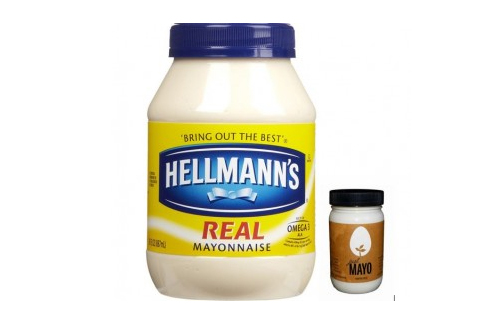Navajo Nation Fights Urban Outfitters over Tacky Trademark Infringement

While we as a nation have shown little deference to the Native American indigenous people of North America, retailer Urban Outfitters has taken cultural insensitivity to new extremes. Stomping on the nation’s culture is one thing, but ignoring their trademark rights?!? Really, Urban Outfitters! How low can you go? It is pretty distasteful to sell Navajo branded panties, and it’s another thing altogether to sell Navajo branded flasks, especially since the Navajo Nation prohibits the sale, possession or consumption of alcoholic beverages on its lands. But those petty grievances pale in comparison to the fact that Urban Outfitters unapologetically violated the Navajo’s U.S. trademark rights. Or do they? Maybe I’ve just got trademark tunnel vision.
I first wrote about this story back in October. The Navajo branding faux pas landed Urban Outfitters in hot water with the public back then, and the stakes since were increased as the Navajo hauled Urban Outfitters into federal court on February 28, 2012, filing a lawsuit alleging trademark infringement, dilution, unfair competition, and violation of the Indian Arts and Crafts Act of 1990, which makes it illegal to offer or display for sale, or sell any art or craft product in a manner that falsely suggests it is Indian produced, an Indian product, or the product of a particular Indian or Indian Tribe or Indian arts and crafts organization, resident within the United States. I can’t imagine how Urban Outfitters is going to get itself out of this mess.
NAVAJO is not only a federally registered trademark, but it’s a pretty heavily protected mark at that. There are 97 LIVE PTO records — federal trademark registrations or pending registration applications — comprised in whole or in part of the term NAVAJO. This includes 27 marks comprised solely of the word NAVAJO, of which 13 are owned by Dine Development (Dine) and 9 of which are owned by Navajo Arts & Crafts Enterprise (NACE). Both Dine and NACE are wholly owned by the Navajo Nation, a sovereign Indian Nation. The NAVAJO word mark is federally registered to Dine and NACE for: apparel, bags, linens, more apparel, eyeglasses, on-line retail clothing stores eyeglass cases, footwear & outerwear, tobacco, furniture, more bags, cooking utensils, skin care products and fragrances, blankets & rugs, horse bridles, dolls, tableware, jewelry and silver goods, ties and belts, pillow covers, textile yarn, paintings and drawings, and tobacco pouches. That’s enough merchandise to fill an entire department store!
Today, Bill Donovan, a 30 year contributor to the Navajo Times told Michel Martin on NPR that the Navajo Nation does not oppose (non-trademark, presumably) use of its culture if it is done in a sensitive way. Apparently, the Navajos have endorsed some third party products, including a Mazda NAVAJO SUV about 15 years ago. Panties and flasks, however, did not make the cut. Not that Urban Outfitters asked permission, but still. I imagine this case will become even more heated before it settles, hopefully with some form of apology from Urban Outfitters.
 A simple trademark search would have revealed the Navajo Nation’s abundant use of the NAVAJO mark for apparel and related goods. That alone should have caused Urban Outfitters pause enough to decide to refrain from using NAVAJO to promote their own products, and that would have prevented the onslaught of bad press and an expensive lawsuit.
A simple trademark search would have revealed the Navajo Nation’s abundant use of the NAVAJO mark for apparel and related goods. That alone should have caused Urban Outfitters pause enough to decide to refrain from using NAVAJO to promote their own products, and that would have prevented the onslaught of bad press and an expensive lawsuit.



http://navajo-office.com/company.html
Does this count as trademark infrigement?
I don’t think so. Presuming that the Navajo Nation does not offer NAVAJO branded office supplies or have its own NAVAJO branded office supply stores, then consumers are unlikely to be confused into thinking that these Navajo branded office supply store services emanate from the Navajo Nation. Remember, generally speaking trademark rights are limited to specific goods/services, so relatedness of the infringer’s goods/services to that of the brand owner is a prerequisite for infringement. Famous brands get a much broader scope of protection — called dilution — that prevents any use of their mark that weakens (dilutes) the distinctiveness of their mark. That’s why you don’t see “____oogle” marks owned by anyone other than Google.
I hope this is helpful for you. Thanks for reading and interacting with Brand Geek!